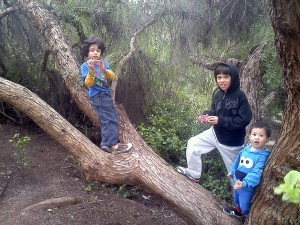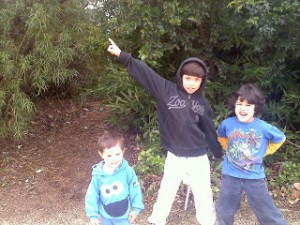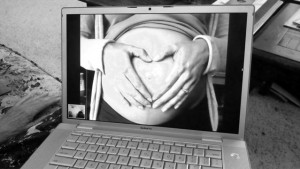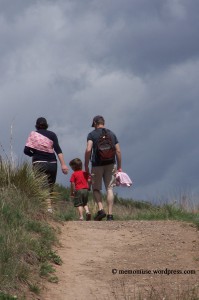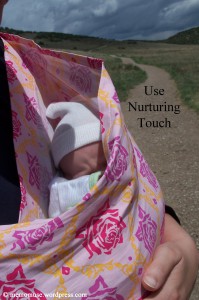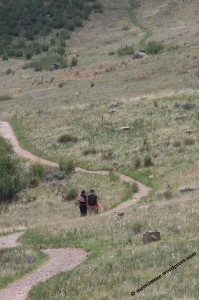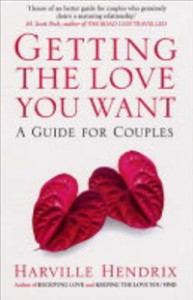We are continuing this series with two more of the most common challenges of transitioning from infancy to toddlerhood as your baby grows. Here is what parents had to say …
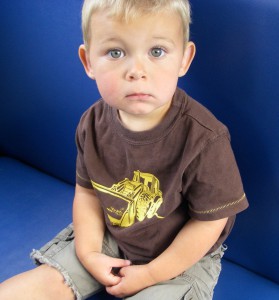 What do you find most challenging about transitioning from using AP in infancy to using AP in toddlerhood?
What do you find most challenging about transitioning from using AP in infancy to using AP in toddlerhood?
Challenge: Criticism and lack of support
- Outside influences concern me, as well as feeling the pressure in public when maintaining boundaries.
- Other people’s comments!
- Simply having to deal with others’ reactions to various principles of AP. People are much more vocal with their opinions when you use gentle, positive discipline as opposed to physical punishment with a toddler. It becomes less acceptable to be responsive and sensitive to a child’s needs.
- Realizing that for the most part, we don’t live in an AP-friendly society. Support and encouragement can be hard to find if you are doing everything quite differently compared to the majority of people in a community.
- Not having a partner who embraces positive discipline.
- Enacting positive discipline and feeling the distinct difference in parenting choices with peers.
- Outside opinions
- It’s hard to explain to people that you ARE teaching your toddler right from wrong; that it just might not look like it because you aren’t using traditional discipline and punishment.
- Spousal and family support
Tip: Find a network of support.
Being able to connect to a group of like-minded parents is invaluable. Whether it’s online, in person or some combination of both, make sure you have someone you can turn to when you need a boost of encouragement. API offers a variety of way to connect with attachment-minded moms and dads, so you can always find a source for support. Many API leaders have started groups in their hometowns precisely because they are the ones looking for support! Local AP chapter meetings, telephone leader support, online forums, social media groups … API has places you can turn for help, advice or just to vent. Support is crucial in parenting; if you’re not getting it, seek it out!
Challenge: Perceived entitlement
- I find it hard to discipline gently and not let my kids walk all over me.
- I feel like my kids have a sense of entitlement, but it could just be that they have a heightened sense of confidence. But sometimes I have a “parent fail” when they seem out of control.
- The attitude! Little babies just have needs. Toddlers want it all right this second, 24/7.
- Teaching my toddler to wait when she has never waited for anything since birth.
Tip: Set limits with a balance of kindness and firmness.
It’s OK to say no. Toddlers will be upset about that—and that’s OK, too. Don’t confuse poor brain communication with entitlement. With their developing senses of autonomy and initiative, toddlers are hard-wired to explore their environment, discover boundaries and act with purpose. They just lack sufficient neural pathways to help regulate feeling and doing. So when we set a limit, tell them to wait or respond with a “No,” the emotions of their midbrain take over, and they communicate and act in the most effective way they know how—whining, yelling, crying and a general lack of patience or understanding.
Responding with sensitivity by setting limits with kindness and firmness will help children develop the neural coordination in their brain that will (eventually) allow them to respond with patience and understanding while still experiencing those necessary boundaries you set for their for health and safety. However, this takes years! Toddlerhood is only the beginning of neural development. You may see the beginnings of a child’s development of patience, understanding or self-control in one moment and in the next moment “entitled” behavior. This is normal. Children have years to go before their development reaches full maturity, and that growth is non-linear. There will be times of progression as well as regression.
The key is to consistently respond with kindness and firmness throughout their development, so children are able to form those neural pathways between feeling and doing.
Kindness: acknowledge and accept the child’s emotions.
Firmness: hold your limit.
I love you and the answer is no.
You really want to ___. It’s so fun! And it’s not safe.
You’re angry I won’t let you ___. It’s OK to be mad about that.
I’m sorry you have to wait; I know it’s hard!
Developing understanding, self-regulation and self-control will happen; it just takes time for the neural connections to develop and for the child to move forward from parental regulation. But every time you respond with kindness and firmness you are helping this process.
Don’t miss Part 1 of this series, and watch for Part 3 coming soon!


